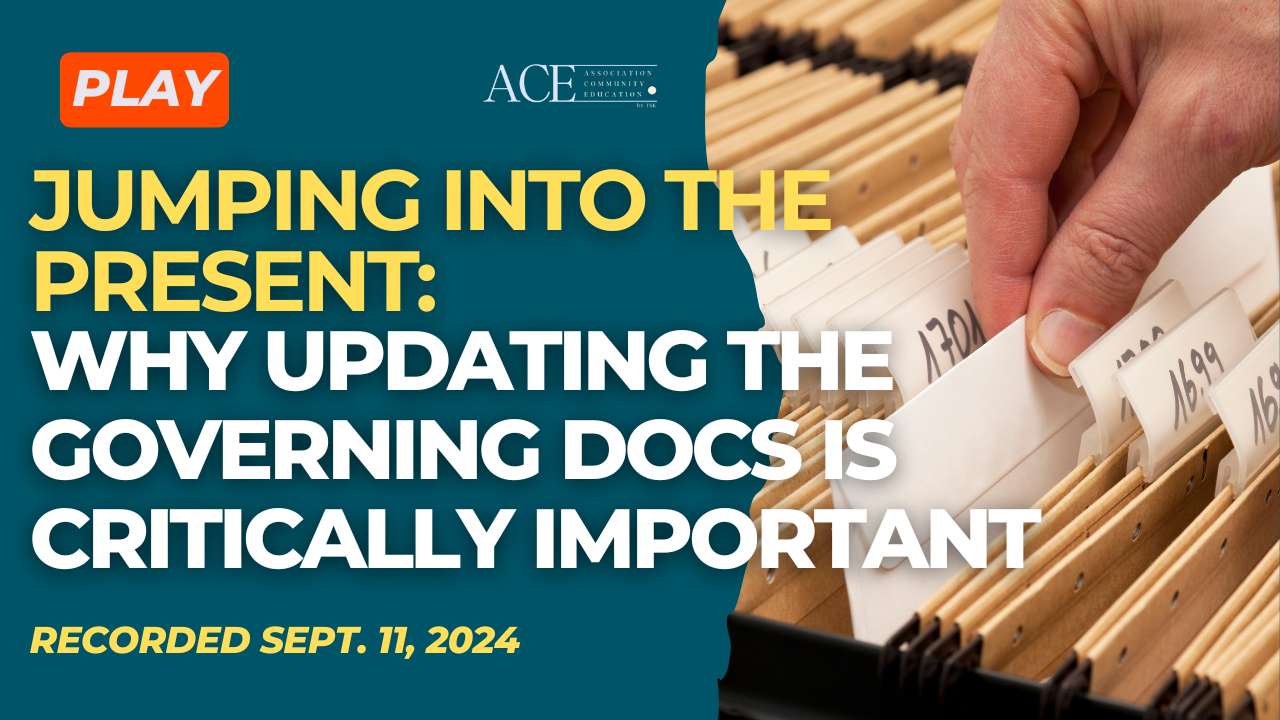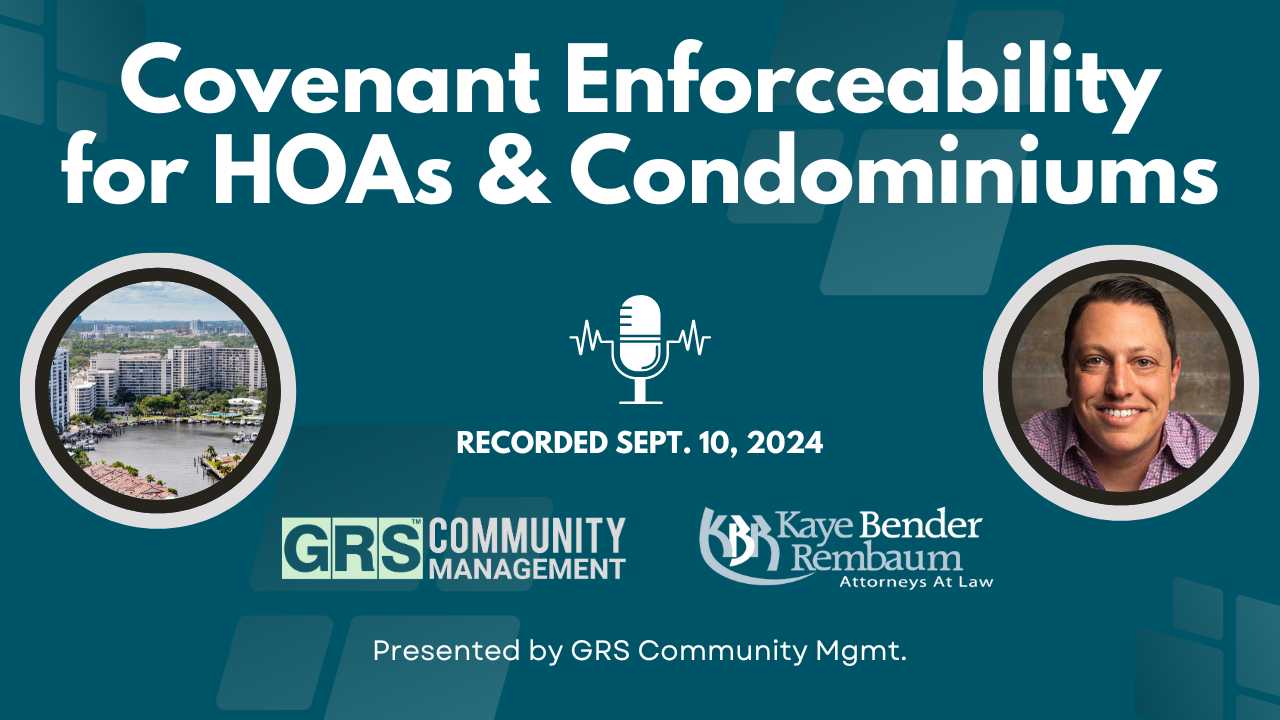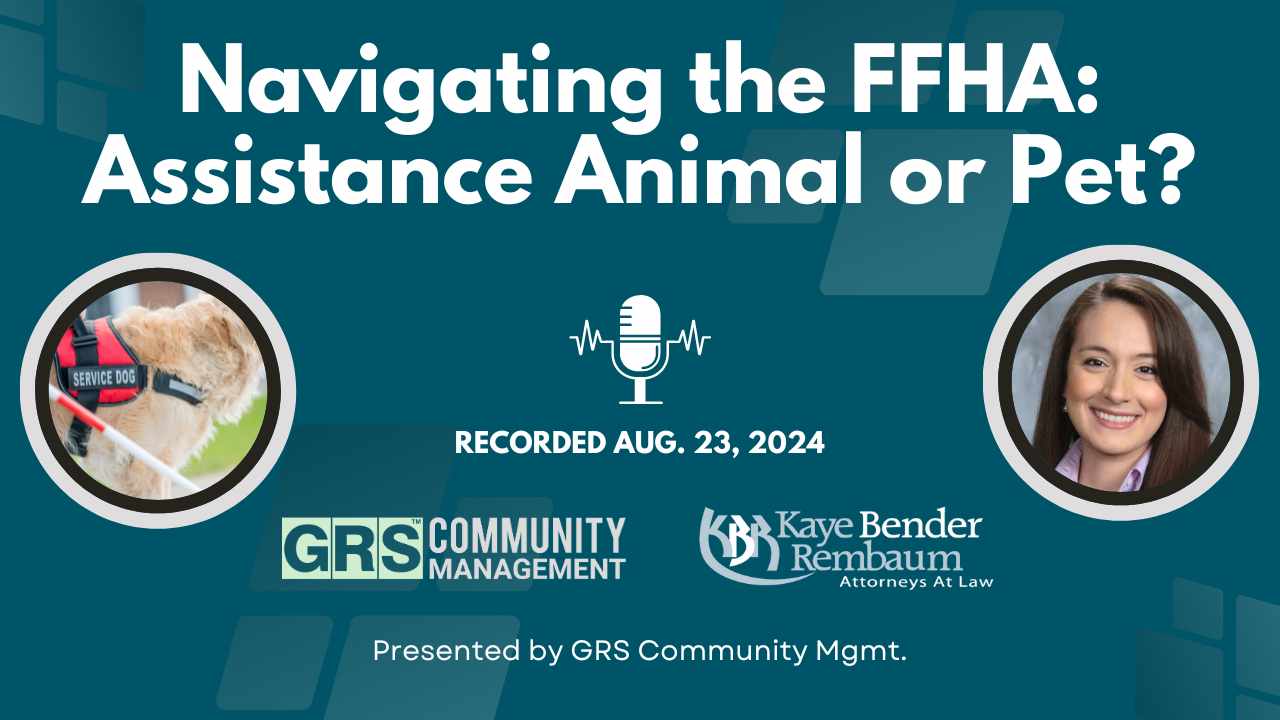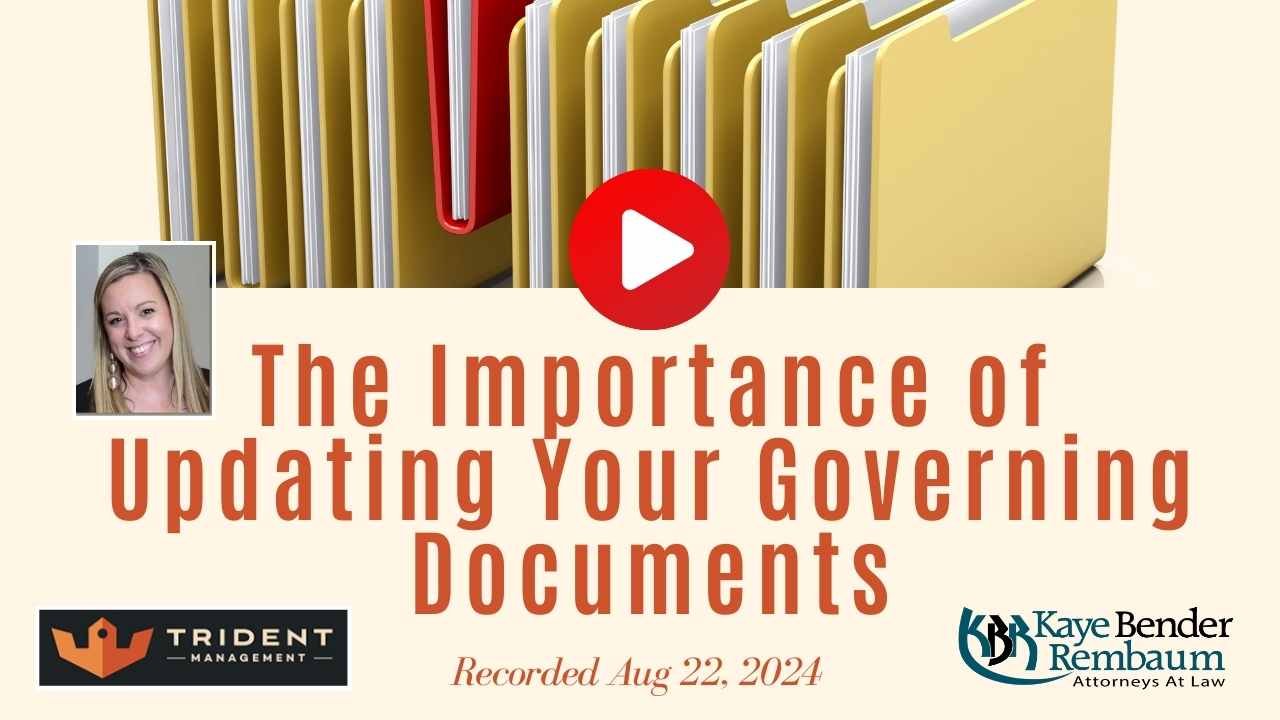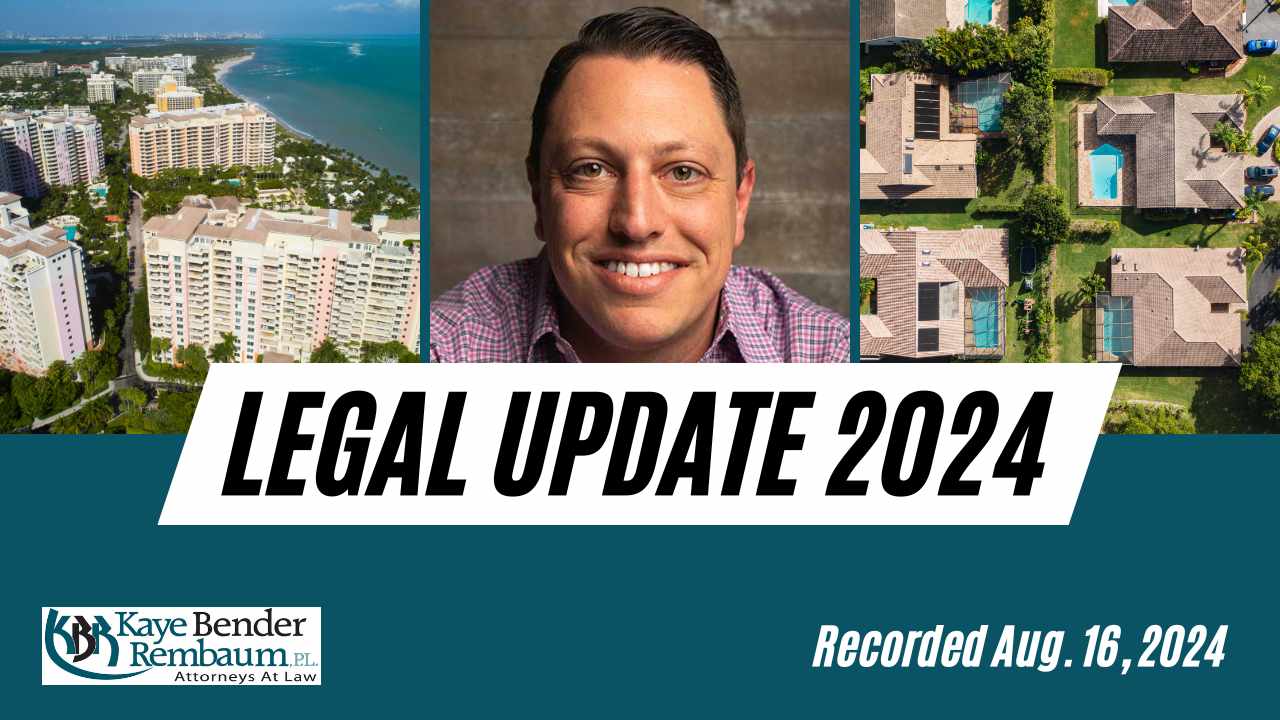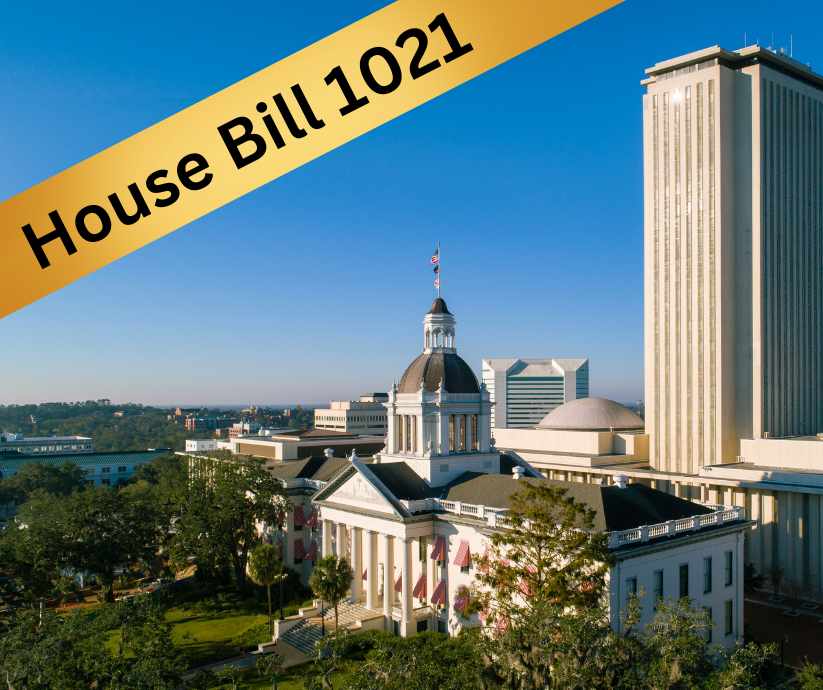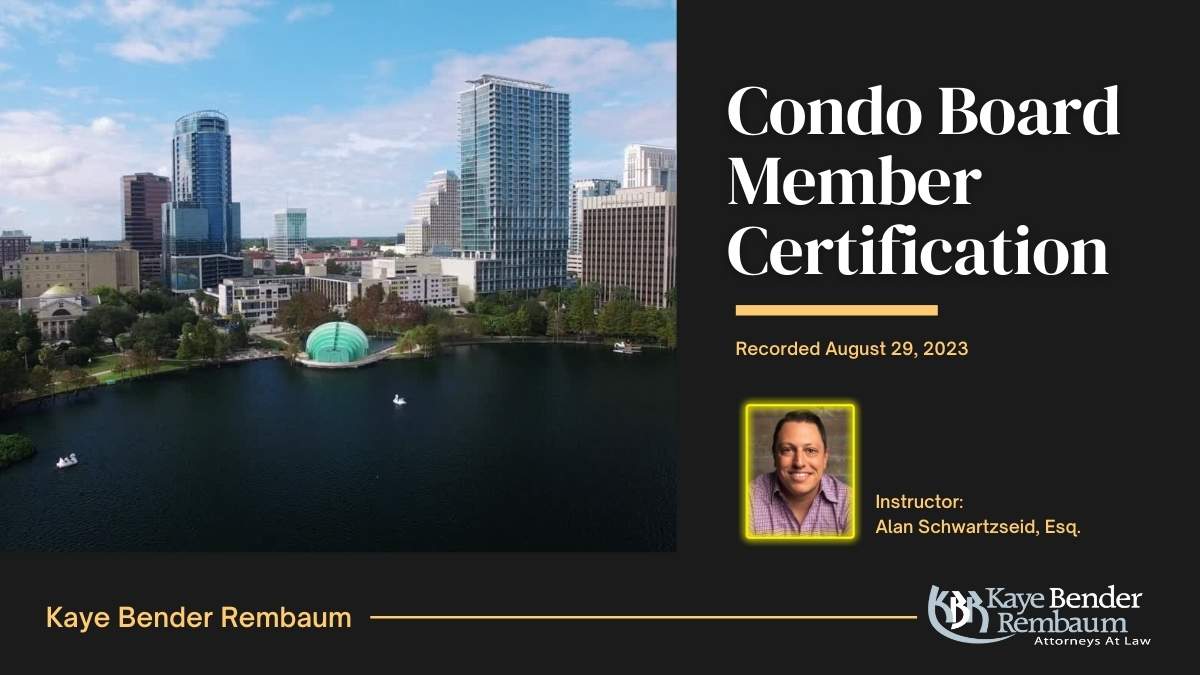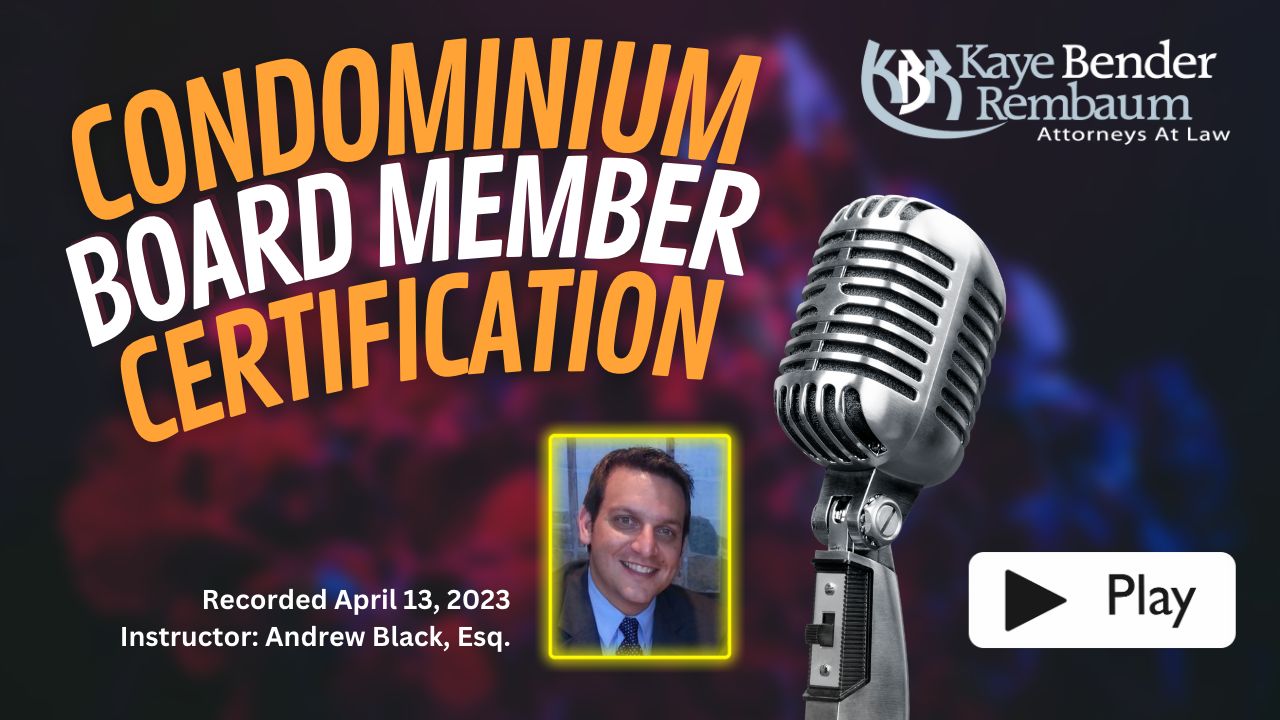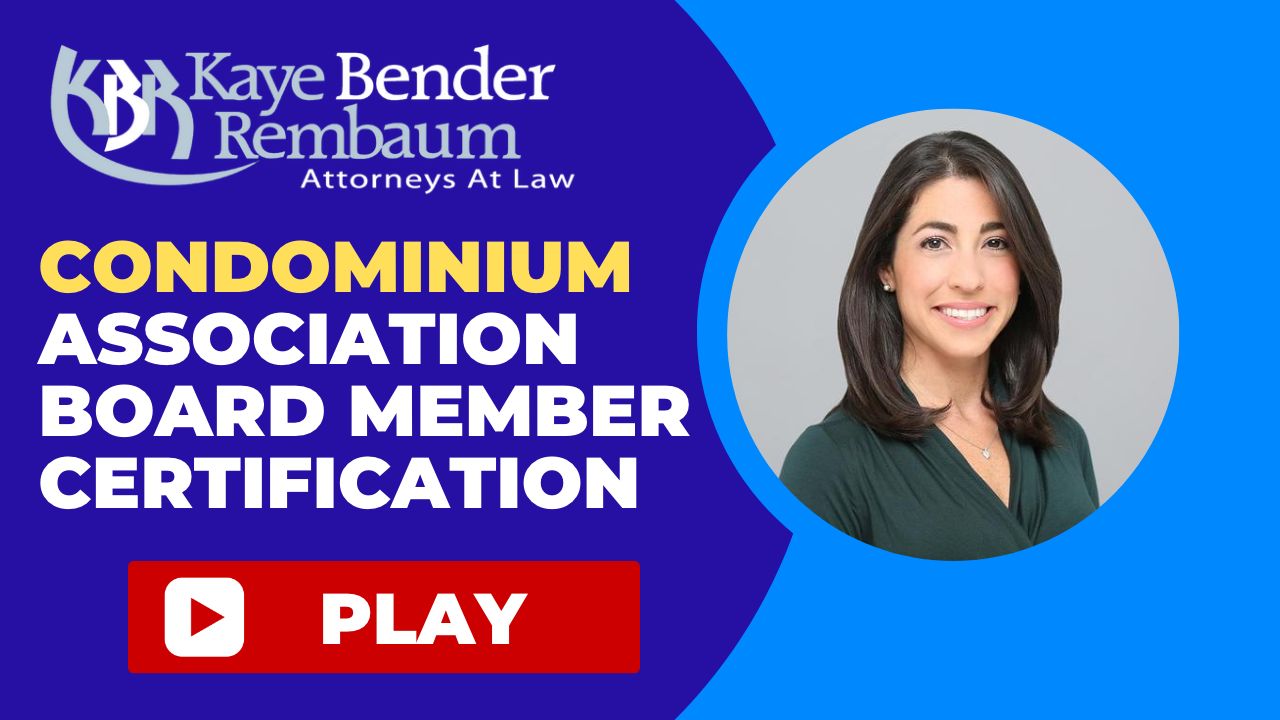By now, you likely have heard that House Bill 1021 was signed into law by the Governor on June 14, 2024. This new law impacts condominium associations governed under Chapter 718 of the Florida Statutes and for the most part has an effective date of July 1, 2024 (one Section is effective January 2026). There have been several local (and even national) news stories focusing on various aspects of these wide-ranging changes, which are intended to strengthen what is perceived as a lack of oversight of board members and other stakeholders in the operation of condominium associations. If you have not done so already, we encourage you to review our comprehensive update that includes all of the 2024 relevant legislative changes impacting both condominium and homeowners’ associations (which can be found HERE).
As these new changes can be overwhelming to digest all at once, for this article, we will focus on a few key new items that will directly impact your day-to-day operations:
(A) Official Records:
(i) Website: Currently, only an association managing a condominium of 150 or more units must post copies of its official records on its website. With the new changes, by January 1, 2026, any association managing a condominium of 25 or more units must have a website with its records posted and available for unit owner review. Further, in response to a record request, an association may direct the requesting party to its website (rather than having to schedule a physical inspection appointment).
(ii) Organization and Checklist: The Official Records must be maintained in an “organized” manner, and in the event any of the records are lost, destroyed, or otherwise unavailable, the association will have a “good faith obligation” to obtain and recover the records as soon as reasonably possible. Further, in response to a record inspection request, the association must provide a “checklist”, which identifies the records that were provided and the records that were not made available (the “checklist” is an Official Record itself and must be maintained for 7 years).
(iii) Emails: The law clarifies that owner email addresses are NOT part of the official records that are open for inspection by the owners unless: (i) the subject owner has consented to receiving notices of association meetings via email; or (ii) the subject owner has expressly indicated that his or her email address can be shared with other owners.
*Key Takeaway: The new laws include increased penalties (including potential criminal charges for board members or managers who knowingly, willfully, and repeatedly violate the record inspection requirements, or who intentionally defaces or destroys financial/accounting records), so it is extremely important for your board to review its official record practices and procedures to avoid potential sanctions. As a reminder, the law allows a board to adopt reasonable rules regarding the frequency, time, location, notice, and manner of record inspections and copying. Accordingly, we recommend contacting your association counsel to discuss these new requirements, and to consider reviewing (or modifying) your current record inspection rules.
(B) Board Meetings/Board Education:
(i) Frequency and Content of Board Meeting Notice/Agenda: The board must now hold a meeting at least once each quarter during the calendar year. Further, at least four (4) times each year, the agenda for the board meeting must include the opportunity for owners to ask questions of the board, including the right to ask questions relating to the status of construction/repair projects and the revenues/expenditures of the association. Also, if the board meeting has an agenda item regarding the approval of a contract for goods or services, a copy of the contract must be included with the notice.
*Key Takeaway: While the law does not expressly require the board to provide a substantive answer to these owner questions, be sure that the notice of your board meetings (at least 4 times a year) contains an agenda item for “owner questions” or words of similar effect.
(ii) Continuing Education for the Board: Board Members are now required to satisfactorily complete at least four (4) hours of State-approved “new board member” education curriculum (check our website at kbrlegal.com for upcoming approved classes) that include instruction on a host of important topics, including milestone inspections, structural integrity reserve studies, elections, and financial literacy and transparency. The educational certificate must be submitted within 1 year before or within 90 days after election or appointment to the Board, and is valid for 7-years (and does not need to be resubmitted as long as the directors serves without interruption during the 7-year period). Any Board Member elected or appointed prior to July 1, 2024 will have unitl July 1, 2025 to comply with this 4-hour education requirement.
Additionally, within one year after submitting the 4-hour educational certificate (and annually thereafter), all Board Members must complete one (1) hour of continuing education by a State-approved provider that addresses legislative changes from the past year. This is in addition to the “new board member” educational requirement.
*Key Takeaway: Simply signing a statement that you have read the governing documents and will work to uphold them to the best of your ability, in and of itself, is no longer sufficient to comply with the Board Member certification requirement. It is clear that the new changes are aimed at ensuring that Board Members cannot “bury their heads in the sand” regarding the legal requirements of operating condominiums and will be proactive in ensuring awareness of the requirements of serving their communities.
C. Prohibition on Board Members “Retaliating” against Owners
The new changes expressly prohibit associations from “retaliating” against an owner, who, in good faith, does any of the following actions:
(i) filed a complaint with a governmental agency against the association;
(ii) organized, encourages, or participated in a unit owner’s organization;
(iii) exercised his or her rights under the Florida Statutes (for instance, by submitting a record inspection request or submitting questions via certified mail to the association); and/or,
(iv) made public statements critical of the operation or management of the association.
Further, associations may not expend association funds to bring a lawsuit for defamation against an owner or any other claim against an owner based on the conduct described in paragraphs “(i)-(iv)” above.
*Key Takeaway: There is no doubt that every community, from time to time, has to deal with at least one difficult owner. However, the law makes clear that public criticism from owners is “part of the job” of serving on the Board, and an owner expressing his or her opinion (even in a not-so-nice fashion) on operational issues is not a valid basis for the Board to pursue enforcement action with the common funds of the association. As such, prior to considering sending a “cease and desist” demand letter (or other enforcement measures) to an owner regarding his or her public comments or criticism, it is suggested to review the situation with legal counsel to evaluate the most appropriate option to pursue.
As noted, the topics discussed here are only a small part of the larger changes contained in the new laws for 2024 and beyond. In the coming weeks and months, we will offer additional information regarding other such changes in future editions of Legal Morsels. In the interim, should you have any questions regarding these or any other changes, feel welcome to check with your association attorney.

